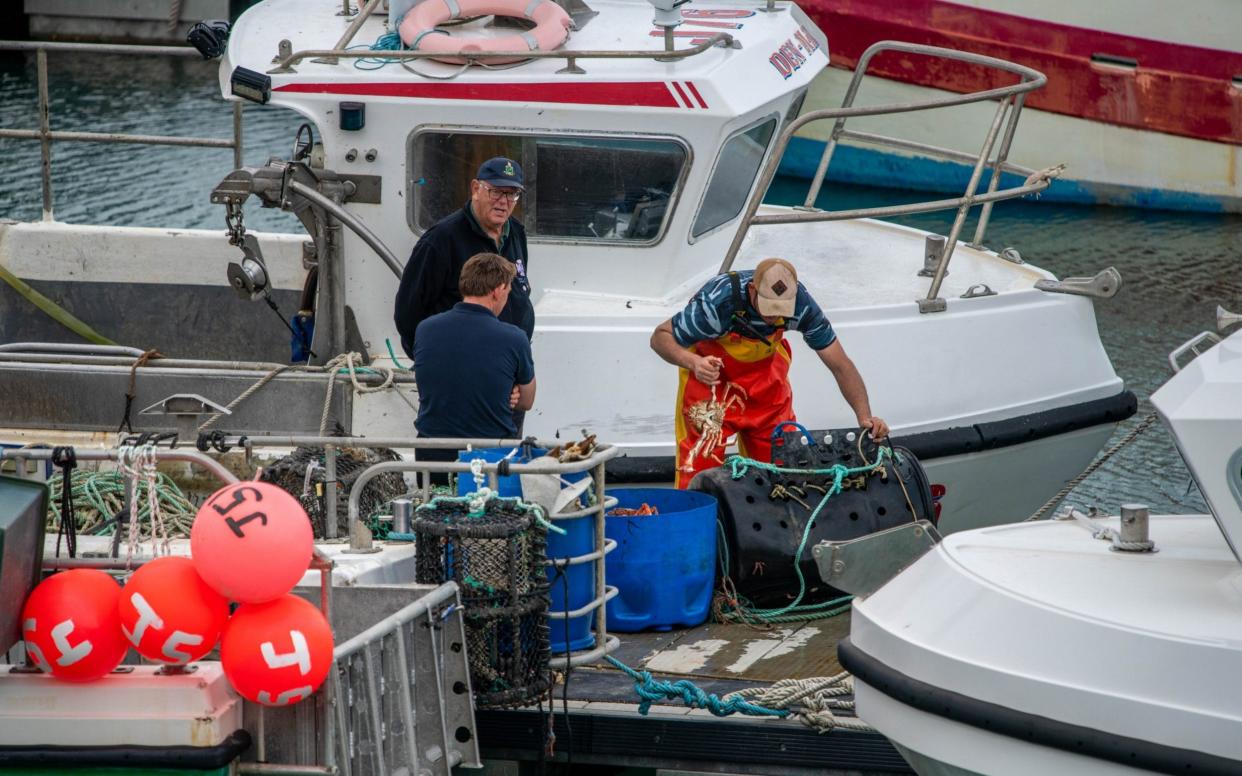Britain and EU sign fishing deal – but it ‘won’t please everyone’

- Oops!Something went wrong.Please try again later.
Britain and the European Union on Wednesday agreed the first ever annual deal on the management of shared fish stocks after Brexit.
In anticipation of a potential backlash from British fishermen, Whitehall sources on Wednesday night cautioned that agreement would not "please everyone".
Brussels said the new fishing agreement proved that the UK and EU could work together after months of tensions since the UK left the Brexit transition period on December 31.
The European Commission said the new deal created a “strong basis for continued EU-UK cooperation in the area of fisheries” after months of negotiations, which began in January.
The agreement sets out the total allowed catch (TAC) for more than 75 shared stocks in UK and EU waters for the rest of the year.
The TAC, which aims to prevent overfishing, is then divided between the two sides on the basis of quotas agreed in the Brexit deal on fishing on Christmas Eve. Both sides had agreed to use the 2020 TAC until a deal could be found.
Under the Brexit fishing agreement, the EU will transfer 25 percent of its fishing rights in UK waters between now and June 2026, which is far less than British negotiators had initially demanded.
Wednesday's agreement in principle was reached in a Wednesday afternoon phone call between George Eustice, the Environment Secretary, and Virginijus Sinkevičius, the EU fisheries commissioner. It must still be approved by EU governments.
“While reaching an agreement has been challenging, our aim throughout these fisheries negotiations has been to safeguard the sustainability of our fish stocks and seek an agreement that respects our new status and works for the UK fishing industry,” Mr Eustice said.
EU officials said the agreement respected the principles of the Common Fisheries Policy on sustainability and that it would allow both sides to exchange fishing quota by agreement. It also set terms for the exploitation of non-quota stocks.
“This is good for fishermen and women, our coastal communities and our ports, as well as for the sustainable use of our marine resources,” Mr Sinkevičius said.
“This also proves that two partners on both sides of the Channel can find agreements and move forward if they work together.”
UK-EU relations have been strained since January 1 with tensions over an effective ban on UK exports of live shellfish, a row over coronavirus vaccines and the ongoing dispute over the Northern Ireland Protocol.
French fishermen have accused the Government of being slow in handing out licences to boats they say have a historic right to fish in UK waters. Negotiations continue but are complicated by the fact many smaller boats do not carry electronic equipment that logs their past fishing activity.
Jersey’s main port was blockaded by a flotilla of French boats furious that the government there had introduced new post-Brexit conditions on the granting of licences. Two Royal Navy ships and two French Navy ships were dispatched to the scene of the protest, which came after a French minister threatened to cut off the island’s electricity.
British officials refused to give out more details of the agreement but said full details would be set out in the coming days in a formal written record of the talks with Brussels.
UK fishing industry representatives said they had been promised a briefing by government officials very soon.
Industry sources told The Telegraph that while the quotas were already set out in the Brexit fishing agreement, the TAC for each species would be crucial.
This is because even if the quotas remain the same or are improved as a result of the Brexit treaty, a lower TAC could still result in the total tonnage of fish able to be landed being reduced.
Conservationists accused both the UK and the EU of setting the TAC too high.
“If both parties want to lead on sustainable fisheries management internationally and help counter the climate and biodiversity emergencies, they must end overfishing immediately, '' said Vera Coelho, of NGO Oceana.

